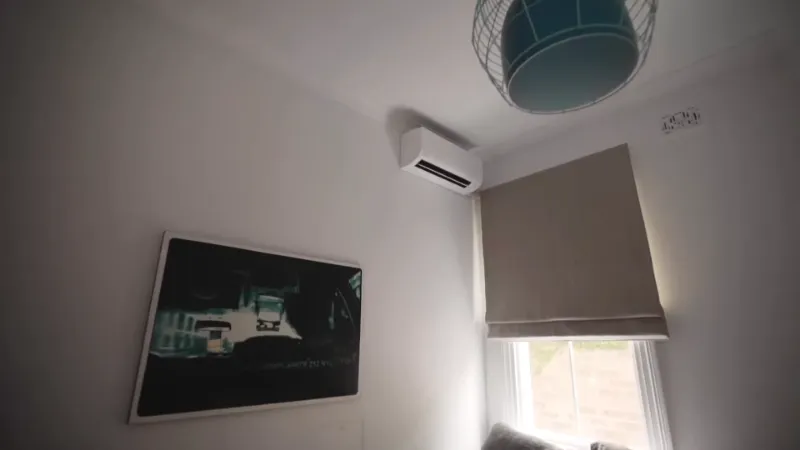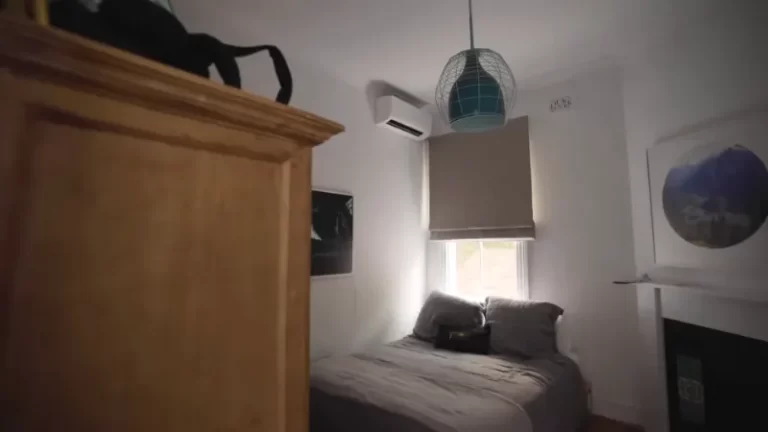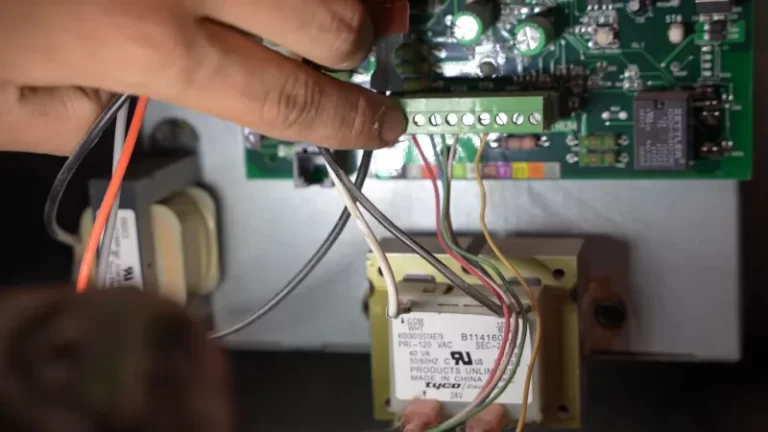When to Turn Off Your Air Conditioner: Tips for Environmental, Cost, and Health Benefits
Air conditioners provide welcome relief during hot and humid summer months. However, running them continuously can not only be expensive but also harmful to the environment. Knowing when to turn off your air conditioner is essential to save energy, reduce utility bills, and prolong the lifespan of the AC unit.
In this blog post, we will explore the situations when it’s appropriate to turn off your air conditioner. Specifically, we will discuss when you should turn off your air conditioner when you’ll be away for an extended period, when the weather has cooled down, and when you can use natural ventilation to keep your home cool.
By being mindful of when to turn off your air conditioner, you can not only save money but also reduce your carbon footprint.
You'll Learn About
When to Turn Off Your Air Conditioner
Turning off your air conditioner can be a good idea in certain situations, such as when you’ll be away from home for a while or when the weather has cooled down significantly. By being mindful of when to turn off your AC, you can save energy, money, and help prolong the life of your AC unit.
When You’ll Be Away for an Extended Period
If you’re planning to be away from home for several days or more, it’s a good idea to turn off your air conditioner. There’s no point in running your AC unit when there’s no one there to enjoy the cool air. Turning off the AC will also help save energy and reduce your utility bill while you’re away.
When the Weather Cools Down
When the temperatures outside have dropped significantly, and you don’t anticipate any more hot weather, it’s time to turn off your air conditioner. If the daily high temperature has consistently stayed below 75 degrees Fahrenheit for a few weeks, then it’s safe to assume that you won’t need your AC unit anymore. Signs that it’s time to turn off the air conditioner include cold drafts, a chilly feeling in the air, and constant cycling on and off of the AC unit.
When You Can Use Natural Ventilation
Using natural ventilation to keep your home cool can be a great alternative to running your air conditioner. Natural ventilation works by using outdoor air to cool your home. By opening windows and doors, you can create a flow of air that will keep your home cool and comfortable.
It’s important to ensure that the outside air is clean and healthy to breathe.
Benefits of Turning Off Your Air Conditioner

Environmental Benefits of Turning Off Air Conditioners
Turning off your air conditioner can have a significant positive impact on the environment. Air conditioners consume a lot of energy, and the electricity used to power them is often generated by burning fossil fuels.
When you turn off your air conditioner, you reduce the amount of electricity used, which, in turn, reduces the amount of fossil fuels burned. This helps to reduce carbon emissions, which are a significant contributor to climate change.
By turning off your air conditioner, you can help to reduce your carbon footprint and contribute to a healthier environment.
Cost Savings Benefits of Turning Off Air Conditioners
Another significant benefit of turning off your air conditioner is the cost savings you can achieve. Running an air conditioner can be expensive, especially during hot summer months. By turning off your air conditioner, you can reduce your energy bills and save money.
In addition, turning off your air conditioner can help to prolong the life of your AC unit. When you run your AC unit constantly, it puts a strain on the system, which can cause it to wear out faster.
By turning off your air conditioner when it’s not needed, you can help to extend the lifespan of your AC unit and reduce the need for costly repairs or replacement.
Health Benefits of Turning Off Air Conditioners
Finally, turning off your air conditioner can also have health benefits. Air conditioners can be a source of indoor air pollution, as they can harbor mold, bacteria, and other allergens. By turning off your air conditioner and using natural ventilation instead, you can help to improve the quality of the air inside your home.
This can be especially beneficial for those who suffer from allergies or respiratory issues. In addition, turning off your air conditioner can help to reduce noise pollution, which can also have a positive impact on your health and well-being.
turning off your air conditioner can have significant benefits for the environment, your wallet, and your health. By being mindful of when to turn off your air conditioner and using natural ventilation instead, you can help to reduce your carbon footprint, save money on your energy bills, and improve the quality of the air inside your home.
Comparison of Air Conditioning and Natural Ventilation
| Criteria | Air Conditioning | Natural Ventilation |
|---|---|---|
| Environmental Impact | High energy consumption and carbon emissions | No energy consumption or carbon emissions |
| Cost | High energy bills and potential repair/replacement costs | Minimal or no energy costs |
| Indoor Air Quality | Can harbor mold, bacteria, and other allergens | Can improve air quality, especially with proper filtration |
| Noise Pollution | Can be loud, especially for window units | Quiet, with the exception of external noise |
| Maintenance | Regular cleaning and filter replacement required | Minimal maintenance required |
| Dependence on Electricity | Fully dependent | Not dependent |
This table provides a comparison of air conditioning and natural ventilation in various criteria, such as environmental impact, cost, indoor air quality, noise pollution, maintenance, and dependence on electricity. It can be useful in weighing the benefits and drawbacks of both options and making an informed decision on whether to use air conditioning or natural ventilation.
What Are Some Ways to Improve Natural Ventilation in a Home?
To improve natural ventilation, consider opening windows on opposite sides of the room or home to encourage a cross-breeze. Using window fans to draw in cool air from outside can also be effective. Another option is to install vents or louvers to help direct the flow of air.
Additionally, planting trees or installing exterior shading devices can help reduce heat gain from direct sunlight.
Can Turning Off the Air Conditioner Lead to Mold Growth in the Home?
It is possible that turning off the air conditioner for an extended period can lead to mold growth, especially in areas with high humidity. However, taking certain steps such as keeping the home well-ventilated and reducing moisture sources can help prevent mold growth. Using a dehumidifier and keeping the home clean and dry can also help mitigate the risk of mold.
How Does Using Natural Ventilation Instead of Air Conditioning Benefit the Environment?
Using natural ventilation instead of air conditioning can significantly reduce energy consumption and carbon emissions. Air conditioning units require a significant amount of energy to run, which is often generated by burning fossil fuels. By reducing the demand for air conditioning, we can help reduce our carbon footprint and contribute to a more sustainable future.
What Are Some Cost Savings Benefits of Turning Off Air Conditioners?
By turning off the air conditioner when it is not needed, you can significantly reduce your energy bills. Air conditioning units consume a significant amount of energy, especially during peak usage hours. Additionally, using natural ventilation can help reduce wear and tear on your air conditioning unit, potentially extending its lifespan and reducing repair/replacement costs.
You should turn off air conditioners during hurricanes, You also need to turn off wifi.
Can Natural Ventilation Be Used in All Climates?
While natural ventilation can be effective in many climates, it may not be sufficient in extremely hot or humid climates. In these cases, air conditioning may be necessary to maintain a comfortable indoor temperature.
However, even in these cases, using natural ventilation in combination with air conditioning can help reduce the amount of energy needed to cool the home. Additionally, implementing passive cooling strategies such as shading devices or heat-reflective roofing can help reduce the demand for air conditioning.
Final Words
Turning off your air conditioner can provide numerous benefits for both your wallet and the environment. By turning off the air conditioner when no one is home or when the weather cools down, you can significantly reduce your energy bills and carbon footprint.
Additionally, using natural ventilation can help improve indoor air quality and reduce the risk of mold growth. While air conditioning may be necessary in certain climates, using natural ventilation in combination with air conditioning can help reduce the amount of energy needed to cool the home.
By considering the situations when it is appropriate to turn off the air conditioner and implementing strategies to improve natural ventilation, you can create a more comfortable and sustainable home.



